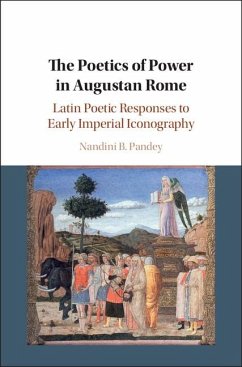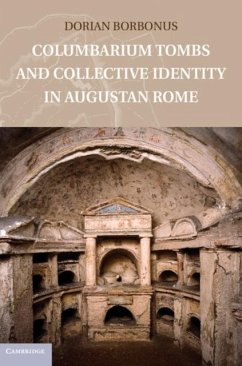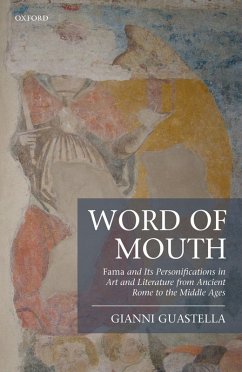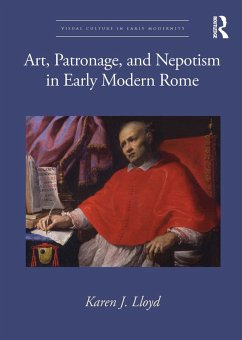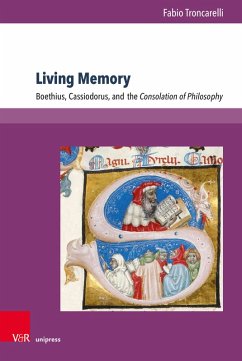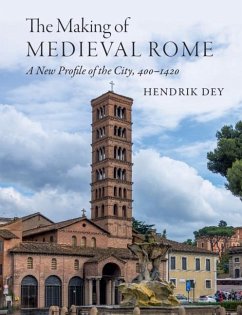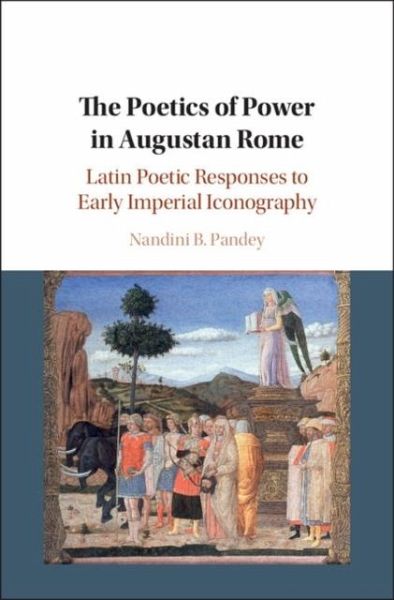
Poetics of Power in Augustan Rome (eBook, PDF)
Latin Poetic Responses to Early Imperial Iconography
Versandkostenfrei!
Sofort per Download lieferbar
75,95 €
inkl. MwSt.
Weitere Ausgaben:

PAYBACK Punkte
38 °P sammeln!
Augustus' success in implementing monarchical rule at Rome is often attributed to innovations in the symbolic language of power, from the star marking Julius Caesar's deification to buildings like the Palatine complex and the Forum Augustum to rituals including triumphs and funerals. This book illuminates Roman subjects' vital role in creating and critiquing these images, in keeping with the Augustan poets' sustained exploration of audiences' active part in constructing verbal and visual meaning. From Vergil to Ovid, these poets publicly interpret, debate, and disrupt Rome's evolving political...
Augustus' success in implementing monarchical rule at Rome is often attributed to innovations in the symbolic language of power, from the star marking Julius Caesar's deification to buildings like the Palatine complex and the Forum Augustum to rituals including triumphs and funerals. This book illuminates Roman subjects' vital role in creating and critiquing these images, in keeping with the Augustan poets' sustained exploration of audiences' active part in constructing verbal and visual meaning. From Vergil to Ovid, these poets publicly interpret, debate, and disrupt Rome's evolving political iconography, reclaiming it as the common property of an imagined republic of readers. In showing how these poets used reading as a metaphor for the mutual constitution of Augustan authority and a means of exercising interpretive libertas under the principate, this book offers a holistic new vision of Roman imperial power and its representation that will stimulate scholars and students alike.
Dieser Download kann aus rechtlichen Gründen nur mit Rechnungsadresse in A, B, BG, CY, CZ, D, DK, EW, E, FIN, F, GR, HR, H, IRL, I, LT, L, LR, M, NL, PL, P, R, S, SLO, SK ausgeliefert werden.




